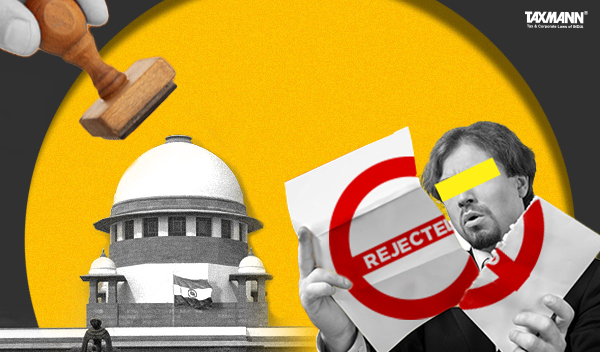Interim Moratorium Barred Continuation of Proceedings u/s 138 of NI Act Against Petitioner Due to IBC’s Overriding Effect | HC
- Blog|News|Insolvency and Bankruptcy Code|
- 2 Min Read
- By Taxmann
- |
- Last Updated on 22 December, 2024

Case Details: Surendra Kumar Patwa vs. Dharmendra Vohra - [2024] 168 taxmann.com 445 (Madhya Pradesh)
Judiciary and Counsel Details
- Sanjay Dwivedi, J.
-
Abhinav Malhotra, Adv. for the Petitioner.
-
Rohit Mangal & Anuj Agrawal, Advs. for the Respondent.
Facts of the Case
In the instant case, one of creditors of petitioner filed an application for initiating insolvency resolution process under Section 95 of IBC. NCLT, in terms of Section 96 of IBC, declared interim-moratorium with respect to all debts of petitioner and all proceedings pending against him.
Meanwhile, respondent had preferred a criminal complaint under Section 138 of N.I. Act against petitioner. The petitioner filed an application seeking stay on proceedings pending before Trial Court on basis of interim-moratorium declared. Said application was rejected by Trial Court.
Later, Revisional Court dismissed revision holding that IBC did not contain any provision regarding stay on proceedings of Section 138 of N.I. Act. It was observed that provisions of IBC had overriding effect as had already been observed by Supreme Court because of a special enactment.
Further, it was also observed in case of P. Mohanraj Vs. Shah Brothers Ispat Private Limited (2021) 6 SCC 258, that moratorium declared under Section 96 of IBC had also application over proceedings of Section 138 of N.I. Act.
That ratio of P. Mohanraj (supra) had not been disturbed even in case of Ajay Kumar Radheyshyam Goenka Vs. Tourism Finance Corporation of India Limited 2023 SCC OnLine SC 266, but on contrary, Supreme Court had followed ratio of P. Mohanraj (supra) and therefore, no question regarding ignoring legal position as had been settled by Supreme Court in case of P. Mohanraj (supra) arises.
High Court Held
Therefore, High Court observed that the interim-moratorium would apply to proceedings initiated against petitioner in respect of any of transactions in which he was involved and proceedings were initiated for recovery of debts from such debtor.
Thus, order passed by revisional Court was not sustainable in eyes of law and accordingly, the High Court held that the instant application by petitioner was to be allowed directing that proceedings initiated against petitioner under Section 138 of N.I. Act, would remain stayed till moratorium declared by NCLT in a pending proceeding of Section 96 of IBC, was in operation.
List of Cases Reviewed
- P. Mohanraj v. Shah Brothers Ispat Private Limited (2021) 6 SCC 258 (Para 21) followed
List of Cases Referred to
- P. Mohanraj & Others v. Shah Brothers Ispat Private Limited (2021) 6 SCC 258 (para 7)
- Kaushalya Devi Massand v. Roopkishore Khore (2011) 4 SCC 593 (para 13)
- Atul Singh v. Indian Oil Corporation Writ Petition No.5339 of 2021 (para 13).
Disclaimer: The content/information published on the website is only for general information of the user and shall not be construed as legal advice. While the Taxmann has exercised reasonable efforts to ensure the veracity of information/content published, Taxmann shall be under no liability in any manner whatsoever for incorrect information, if any.

Taxmann Publications has a dedicated in-house Research & Editorial Team. This team consists of a team of Chartered Accountants, Company Secretaries, and Lawyers. This team works under the guidance and supervision of editor-in-chief Mr Rakesh Bhargava.
The Research and Editorial Team is responsible for developing reliable and accurate content for the readers. The team follows the six-sigma approach to achieve the benchmark of zero error in its publications and research platforms. The team ensures that the following publication guidelines are thoroughly followed while developing the content:
- The statutory material is obtained only from the authorized and reliable sources
- All the latest developments in the judicial and legislative fields are covered
- Prepare the analytical write-ups on current, controversial, and important issues to help the readers to understand the concept and its implications
- Every content published by Taxmann is complete, accurate and lucid
- All evidence-based statements are supported with proper reference to Section, Circular No., Notification No. or citations
- The golden rules of grammar, style and consistency are thoroughly followed
- Font and size that’s easy to read and remain consistent across all imprint and digital publications are applied



 CA | CS | CMA
CA | CS | CMA
